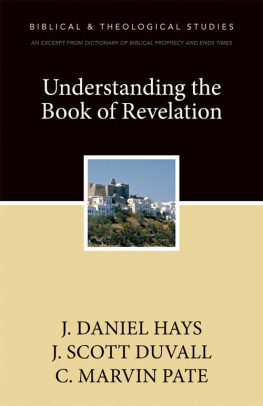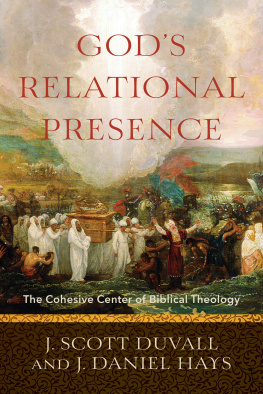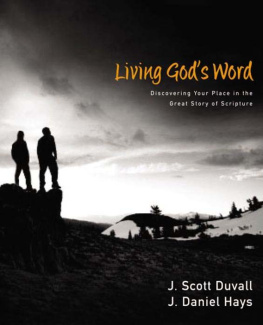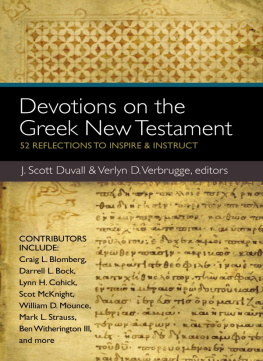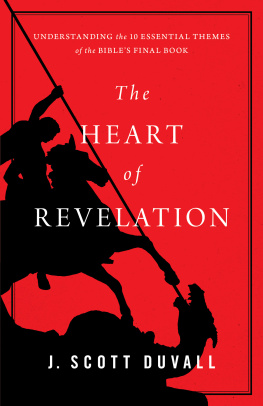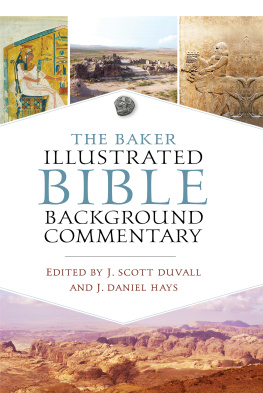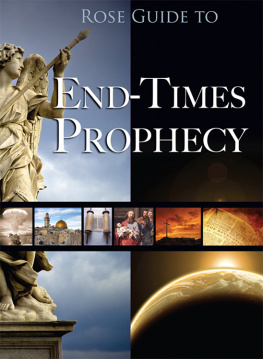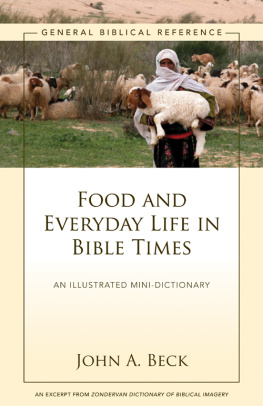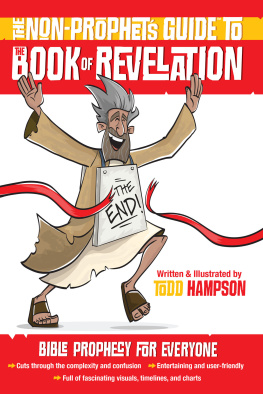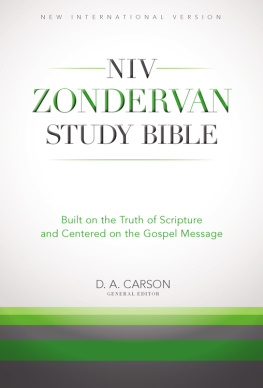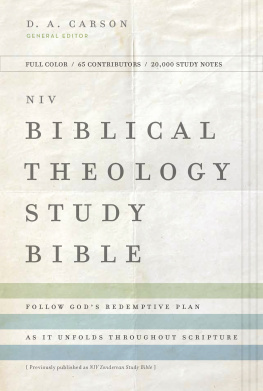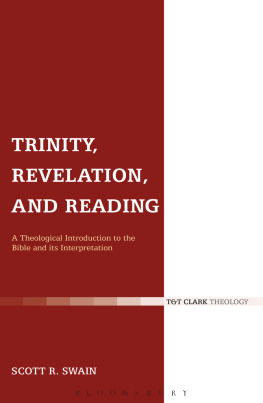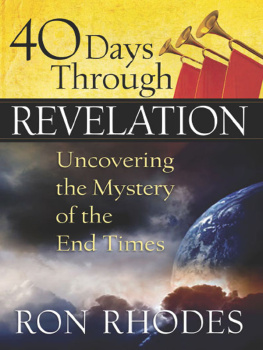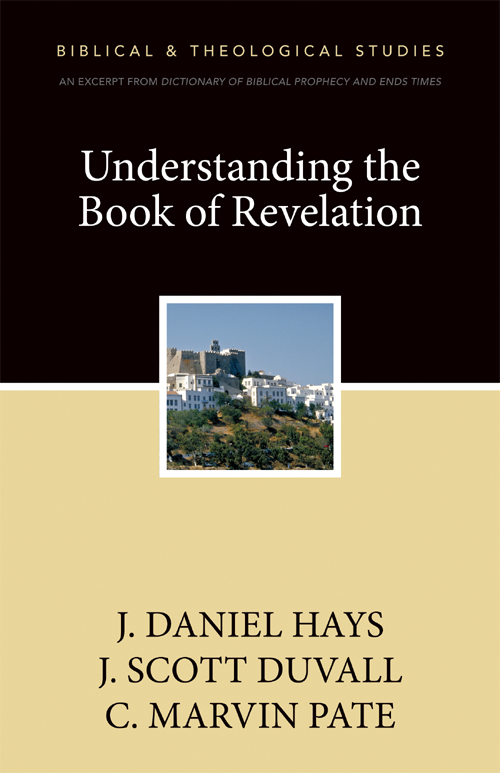ZONDERVAN
Understanding the Book of Revelation
Previously published in Dictionary of Biblical Prophecy and End Times
Copyright 2007 by J. Daniel Hays, J. Scott Duvall, and C. Marvin Pate
All rights reserved under International and Pan-American Copyright Conventions. By payment of the required fees, you have been granted the non-exclusive, non-transferable right to access and read the text of this e-book on-screen. No part of this text may be reproduced, transmitted, down-loaded, decompiled, reverse engineered, or stored in or introduced into any information storage and retrieval system, in any form or by any means, whether electronic or mechanical, now known or hereinafter invented, without the express written permission of Zondervan.
EPub Edition JANUARY 2012 ISBN: 978-0-310-49617-5
Requests for information should be addressed to:
Zondervan, Grand Rapids, Michigan 49530
The Library of Congress has cataloged the original edition as follows:
Hays, J. Daniel.
Dictionary of biblical prophecy and end times/J. Daniel Hays, J. Scott Duvall, and C. Marvin Pate.
p. cm.
Includes bibliographical references and index.
ISBN 978-0-310-25663-2
1. Bible Prophecies Dictionaries. I. Duvall, J. Scott. II. Pate, C. Marvin, 1952-III. Title.
BS647.3.H39 2007
220.1503 dc22 2007000461
CIP
All Scripture quotations, unless otherwise indicated, are taken from the Holy Bible, New International Version. NIV. Copyright 1973, 1978, 1984 by International Bible Society. Used by permission of Zondervan. All rights reserved.
Any Internet addresses (websites, blogs, etc.) and telephone numbers in this book are offered as a resource. They are not intended in any way to be or imply an endorsement by Zondervan, nor does Zondervan vouch for the content of these sites and numbers for the life of this book.
All rights reserved. No part of this publication may be reproduced, stored in a retrieval system, or transmitted in any form or by any means electronic, mechanical, photocopy, recording, or any other except for brief quotations in printed reviews, without the prior permission of the publisher.
Cover design: Ron Huizinga
C ONTENTS
Revelation, Book of
The last book of the Bible is known as the revelation of Jesus Christ (Rev. 1:1). This phrase can denote a revelation about Jesus Christ (the central character) or a revelation from Jesus Christ as he reveals a divine message to John. Perhaps Revelation includes some of both.
As the final chapter in the divine story of salvation, God pulls back the curtain to reveal his plans for human history, plans that center around Jesus Christ. Revelation presents in colorful language and powerful imagery the final chapter in Gods story, where he defeats the powers of evil, reverses the curse of sin, restores his creation, and lives among his people forever. While the details of this awesome and mysterious book are often debated, the main idea is not. God intends the vision of Revelation to transform his people so that they will live faithfully in a fallen world until Jesus returns.
Many people have trouble understanding Revelation primarily because they are unfamiliar with Old Testament prophetic books, with Jewish apocalyptic writings, and with the historical setting of this particular book. This overview of Revelation will touch on Revelations literary genre, its historical situation and purpose, the various approaches used to interpret the book, an overview of its content, and the books purpose and theological message.
Literary Genre
Revelation is a strange book when compared to other biblical books because it combines three different literary types or genres letter, prophecy, and apocalyptic.
A letter. The opening of the book contains a conventional letter greeting (Rev. 1:45) and benediction (22:21). John is commanded to write what he sees and send it to the seven churches (1:11). As a result, the entire book of Revelation (not just chs. 23) is a single letter addressed to seven churches in Asia Minor. Because the number seven symbolizes wholeness or completeness in Revelation, a letter to seven churches is in reality a letter to the whole church.
New Testament letters were meant to be read aloud to the gathered congregations, and this is true also of Revelation. In fact, the opening beatitude (Rev. 1:3) pronounces a blessing on the one who reads the book and on those who listen and obey what they hear: Blessed is the one who reads the words of this prophecy, and blessed are those who hear it and take to heart what is written in it, because the time is near. The book closes with a warning to anyone (reader or listener) who tries to change the book in any way (22:1819).
Also, New Testament letters were situational, meaning that they addressed the specific situation of the readers. Revelation is no different in that its message is directed to the churches of Asia Minor at the end of the first century. Its message may (and perhaps does) extend beyond the first century, but it does not neglect its original audience. Any approach to Revelation that ignores its message to the seven churches fails to grasp the nature of Revelation as a letter.
A prophetic letter. Both the letters opening (Rev. 1:3) and closing (22:7, 10, 1819) describe the book as a prophecy. John is viewed as a prophet of God commissioned by the Lord to write this prophecy. In 19:10 the angel tells John, I am a fellow servant with you and with your brothers who hold to the testimony of Jesus For the testimony of Jesus is the spirit of prophecy. In 22:9 John is told again by an angel, I am a fellow servant with you and with your brothers the prophets and of all who keep the words of this book. Revelation is a prophetic book in line with Old Testament prophetic books.
Biblical prophecy includes both prediction of the future and proclamation of Gods truth for the present, with the emphasis falling on the latter. Often in the very places where Revelation is described as a prophecy, the readers are commanded to obey the prophecy (Rev. 1:3; 22:7, 1819). The emphasis falls on proclamation rather than on prediction because it is difficult to imagine someone being commanded to obey a prediction. Most interpreters agree that Revelation has something to say about the future, though it is not only about the future; it is also a book about what God wants to see happen in the here and now.
A prophetic-apocalyptic letter. In the phrase the revelation of Jesus Christ, the term revelation is a translation of the Greek term apocalypsis, which means unveiling; revealing what is hidden (see APOCALYPSE ). The term apocalypse describes a body of literature that was popular during the time between the Old and New Testament. Most scholars believe that apocalyptic literature grew out of Hebrew prophecy and actually represents an intensified form of prophecy written during a time of crisis. In apocalyptic there is a divine revelation through a heavenly intermediary to some well-known figure, in which God promises to intervene in human history to overthrow evil and establish his kingdom.
In the Old Testament, apocalyptic is often associated with the books of Daniel and Zechariah as well as select passages in other prophetic books (e.g., Isa. 2427; 5666; Ezek. 3839). Jewish apocalypses became popular during the intertestamental period (e.g., 1 and 2 Enoch, Jubilees

